Seeing the eye doctor is about much more than just a prescription for glasses or contact lenses. Although a reduction in vision is what prompts most of us to book an appointment, it is a poor gauge of eye health. It is important to remember that many eye diseases have no symptoms, and vision and eye health are often unrelated. Annual routine visits are the best way to ensure your most precious sense lasts a lifetime.
Common Eye Problems
Blurry vision simply means something has changed with the optics of the eye. This is usually because you need a change to the optical correction in your glasses or contact lenses. But sometimes blurry vision has a deeper cause that needs to be investigated. Some potential causes are:
- Dry Eye disease, resulting in tear film abnormalities or damage to the outer layers of the cornea
- Cataracts – a clouding of the lens inside the eye due to age or certain medications
- Diabetes – a change in blood sugar alters the focusing power of the eye
- Neurological disease – increased intracranial pressure or an inflamed optic nerve (40% of MS patients have sudden vision change as their first symptom)
- Macular degeneration – degeneration or bleeding under the retina in the area responsible for detailed vision
- Central serous retinopathy – fluid retention under the retina, often from inflammation due to stress
There are also many other serious but treatable eye diseases that have NO SYMPTOMS. A comprehensive exam is the only way to detect eye diseases such as glaucoma, which has no vision symptoms until it is too late to treat.
The eye truly is a window into the body. It is unique in that
- It is directly connected to the brain and therefore affected in many neurologic diseases, lesions and tumours.
- 6 of the 12 cranial nerves coming off the brainstem innervate the eye and surrounding tissue. Therefore, tumours or aneurysms affecting these nerves will have an observable effect on the eye, the eye muscles, and/or area around they eye.
- 40% of the brain is devoted to visual processing. As noted above, a brain lesion will usually have a measurable effect on some aspect of the eye, often affecting the field of vision.
- The pituitary gland sits right on top of the optic nerves as they enter the brain. Vision field defects are often the first signs of such tumours.
- It is the only place in the body where we can see internal blood vessels without cutting tissue, thus providing a window into cardiovascular health.
- Uncontrolled hypertension will cause vessels in the retina to become very straight and rigid. This is an observable change we would note during examination.
- Cholesterol deposits and arteriolar sclerosis (hardening of the arteries) is also visible in the retina.
- Diabetes will cause hemorrhages and fluid leakage in the retina if undiagnosed or untreated.
So next time you think about your eyes, remember to think about their role as a window to your overall health. Annual eye health monitoring with an eye exam is an important part of your total health care routine.

Dr. Andrea Lasby Optometrist (F.A.A.O., F.S.L.S.)
Dr. Lasby is a Calgary native and partner at Mission Eye Care. She is residency trained in corneal disease and the fitting of custom scleral lenses for adults and children including babies who have undergone cataract removal (infant aphakia). She is current president of the Alberta Association of Optometrists.






